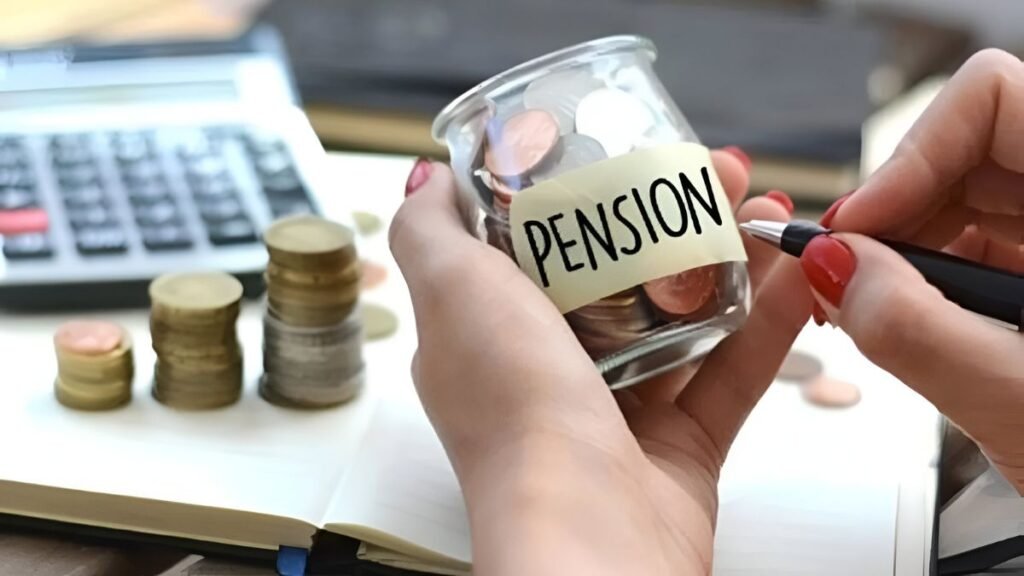Pensioners throughout the UK are being alerted to a financial scenario that may catch them unawares and out of pocket to the tune of 3,000 pounds or more. The joint warning by the Department for Work and Pensions (DWP) and HM Revenue and Customs (HMRC) shows that a great number of pensioners remain oblivious to a shift in government policy which may impact their benefits and financial wellbeing.
What is the £3,000 problem?
The warning could particularly affect pensioners who have savings of more than £3,000 and who rely on the State Pension Cost of living or other related government benefits. Due to policy changes and government spending cuts, such seniors could now potentially have to pay a large sum in back tax.
Pensioners Warned of Unexpected £3,000 DWP Outcome
| Topic | Details |
|---|---|
| Who Is Affected? | Pensioners who have savings exceeding £3,000, and those receiving state pension or related benefits. |
| Financial Implications | Some may owe £3,000 or more in back taxes due to savings limits, which can reduce their eligibility for benefits. |
| Government Action | DWP and HMRC are reviewing policies to ensure pensioners are not unfairly penalized. |
| Next Steps for Pensioners | Contact DWP, check tax status, review savings, and consult financial advisors. |
| Useful Links | Department for Work and Pensions |
Why is this happening?
The government argues that people who have sufficient savings should not need additional support from the state. Under this ideology, having more than £3,000 in savings could result in state support (such as Pension Credit, Housing Benefit etc.) being reduced or stopped altogether.
Example: In one case, an elderly person incorrectly took benefits in a previous period by not reporting their savings correctly. They have now received a notice to pay back £3,000 to the government.
What are the savings limits?
Eligibility to receive pension benefits in the UK depends on both income and savings. Until 2025, if your personal savings are above £3,000, the government assumes you are self-sufficient and do not need additional government support.
What will be the impact on the state pension?

Errors in calculating the state pension are also common. Many pensioners have been underpaid for years without realising it. The Government is now reviewing cases where thousands of pounds have been underpaid If you are underpaid, contact the DWP immediately.
What should pensioners do?
If you want to avoid this problem or have already been affected, take these steps:
- Check your savings: If you have savings of more than £3,000, understand the DWP rules and consult an adviser.
- Assess your state pension: Make sure the amount of your pension is correct. If in doubt, check immediately.
- Contact the DWP: If you have received any kind of notice or warning, don’t delay. Contact the DWP as soon as possible.
- Speak to a tax adviser: If you are likely to owe tax, seek professional advice so you can find out the correct amount and pay it without delay.
Financial management tips
- Understand the impact of savings limits: If your savings limit is getting exceeded, consider transferring it to an ISA or other tax-free investment plan.
- Plan for the future: Build an emergency fund, review pension plans regularly to take into account health expenses and rising inflation.
- Understand the role of tax: Tax rules can sometimes reduce benefits. It is important to file tax returns on time and stay up to date on new policies.
What is the £3,000 DWP Outcome?
The government has received reports that some elderly beneficiaries did not report their savings correctly or were unaware of the new savings threshold. This led to them receiving additional benefits they were not actually entitled to.

Now that the DWP is re-examining these cases, such pensioners are being asked to return lump sums of £3,000 or more.
What’s new in DWP rules?
- Tightening of savings limits: The £3,000 savings limit is now being looked at more closely in determining eligibility for pension credit or other benefits.
- Review of old payments: The DWP is now re-examining benefit payments from previous periods. If someone has been paid extra by mistake, it can be recovered.
- Co-ordination with HMRC: HMRC is recovering tax under tax rules from pensioners who gave incorrect income details or did not include interest on their savings.
Who could be hit the most?
- Older people who are still earning some extra income from their savings after retirement.
- People who are receiving benefits such as Pension Credit, Housing Benefit or Council Tax Reduction.
- People whose savings or income has increased in the last few years but have not updated the DWP.
Do you really have to pay back £3,000?
Yes. The DWP is sending recovery notices to such pensioners. If you were not eligible and were still receiving benefits, you may have to pay back that money.
However, in some cases: You can pay in instalments Or, if you fall into a very low-income bracket, partial forgiveness is also possible.
Essential steps for pensioners
- Review financial documents: Calculate all your savings, income and benefits and make sure the DWP and HMRC have the correct information.
- Ask the DWP for written confirmation: If you’re not eligible for any benefits, find out in advance to prevent that.
- Consult a tax expert: If you think you’ve made a tax or benefit mistake, get professional help.
- Appeal if you’ve made a wrong payment: You can challenge the DWP’s recovery through Mandatory Reconsideration and then Tribunal Appeal.
How to avoid this problem in the future?
- Stay below the savings limit: If possible, keep your savings in tax-free options such as ISAs.
- Update the DWP each year: Notify them of any changes to income, savings or housing situation.
- Use the benefits eligibility calculator: This free tool on the UK Government website helps.
Conclusion:
Pensioners in the UK now need to be aware of the DWP’s £3,000 decision. Inadvertently providing incorrect information or not updating it can lead to a major financial setback. Being prompt and informing the department of every change is the best way to avoid this problem.
FAQs
Q1. Why are UK pensioners facing a £3,000 outcome from the DWP?
A. Many pensioners are unexpectedly facing back tax demands or benefit reductions due to savings exceeding the £3,000 threshold. This affects their eligibility for means-tested benefits.
Q2. What triggers the £3,000 financial impact for pensioners?
A. The financial impact is usually triggered when a pensioner’s savings surpass the £3,000 limit, causing them to either lose benefit entitlement or owe money back due to overpayments.
Q3. Which pensioners are most at risk?
A. Those receiving state pension, Pension Credit, Housing Benefit, or similar DWP support – especially if they have savings that were not declared or have recently increased.
Q4. Is the £3,000 a penalty or tax?
A. It’s not a fine or fixed tax, but rather a result of ineligibility for benefits due to excess savings. In some cases, it could also involve underpaid pension corrections or backdated tax obligations.
Q5. How can I check if I will be affected?
A. Review your savings total, state pension payment records, and benefit eligibility status. Contact the DWP or HMRC for an official assessment.



